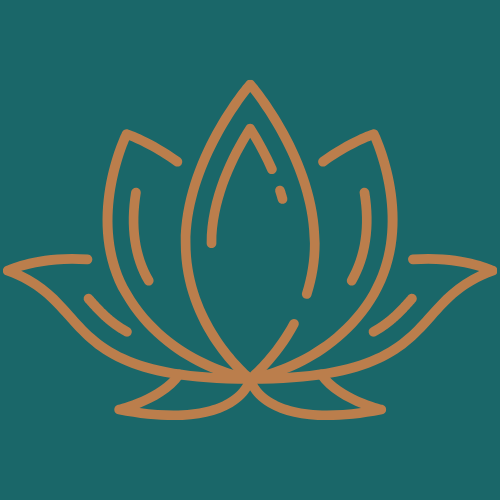As more people become aware of the environmental and health impacts of their choices, the search for sustainable and non-toxic sleepwear has gained momentum. Bamboo products, in particular, have been touted as eco-friendly alternatives, but not all bamboo fabrics are created equal. If you’ve been eyeing bamboo pajamas or linens, it’s crucial to understand the difference between bamboo viscose, which is often chemically processed, and bamboo linen, which offers a more natural and safe option.
The Difference Between Bamboo Viscose and Bamboo Linen
Bamboo Viscose: A Chemically Processed Fabric
Bamboo viscose (also known as bamboo rayon) is made by chemically processing bamboo pulp into a soft, silky fabric. While it originates from bamboo, the process involves harsh chemicals like sodium hydroxide and carbon disulfide. These chemicals can be harmful to the environment if not properly managed, and the final product is far removed from the natural bamboo plant.
Another concern is the potential use of PFAS (per- and polyfluoroalkyl substances) in some bamboo viscose products. PFAS, also known as forever chemicals, are a group of chemicals that can be used to make fabrics water-resistant, stain-resistant, or wrinkle-free. However, PFAS have been linked to serious health issues, including cancer, hormone disruption, and immune system impairment. Given the growing awareness of PFAS, it’s important to be cautious about the types of bamboo products you choose.
Bamboo Linen: A Natural and Safe Alternative
Bamboo linen, on the other hand, is made through a mechanical process that’s much gentler on both the environment and your skin. The bamboo is crushed into a pulp, and the fibers are mechanically combed out to create the fabric. This method avoids the use of harmful chemicals, making bamboo linen a much more natural and sustainable option.
Bamboo linen retains the inherent benefits of bamboo—such as breathability, moisture-wicking, and hypoallergenic properties—without the environmental and health concerns associated with chemically processed bamboo viscose. It may have a slightly different texture compared to bamboo viscose, often feeling more like traditional linen, but it’s a worthwhile trade-off for those looking for a truly eco-friendly and non-toxic fabric.
What to Look For: Labels and Certifications
Avoiding PFAS and Chemicals
When shopping for bamboo sleepwear or linens, it’s important to look for specific labels and certifications that ensure the product is free from harmful chemicals like PFAS. Here are a few things to keep in mind:
- OEKO-TEX Certification: This label indicates that the fabric has been tested and certified to be free from harmful levels of more than 100 substances known to be harmful to human health.
- GOTS (Global Organic Textile Standard): GOTS certification ensures that the fabric meets stringent environmental and social criteria throughout the entire supply chain. While more common in organic cotton, some bamboo linens also carry this certification.
- Bamboo Linen Label: Make sure the product specifically says “bamboo linen” rather than “bamboo viscose” or “bamboo rayon.” Bamboo linen is less common and typically comes at a higher price point, but it’s a safer and more sustainable choice.
- PFAS-Free Labeling: As PFAS concerns have become more prominent, some brands have started to label their products as PFAS-free. This is a good indicator that the fabric hasn’t been treated with these harmful chemicals.
Why Choose Bamboo Linen?
Lifespan and Durability
Bamboo linen is renowned for its durability and can last several years with proper care. Compared to other popular fabrics like cotton and silk, bamboo linen offers excellent longevity. It resists pilling better than many cotton fabrics and retains its softness over time. Unlike silk, which requires delicate handling and care, bamboo linen is more practical for everyday use. Its durability makes it a worthwhile investment for both sleepwear and bedding.
Practicality
When it comes to practicality, bamboo linen strikes a great balance. It’s easy to care for—requiring gentle washing and air drying—and doesn’t demand the same level of attention as silk. Bamboo linen’s natural strength ensures that it holds up well to regular use, whether as pajamas, bedding, or other household linens. Its breathability and moisture-wicking properties make it comfortable year-round, and its hypoallergenic nature is ideal for those with sensitive skin.
Sustainability
Bamboo linen is one of the most sustainable fabrics available. Bamboo itself is a highly renewable resource, growing quickly with minimal water and no need for pesticides. The mechanical processing of bamboo linen is much less harmful to the environment compared to the chemical-heavy process of making bamboo viscose.
Health and Safety
Choosing bamboo linen means you’re opting for a fabric that’s not only good for the planet but also safe for your skin. Free from harmful chemicals, bamboo linen is hypoallergenic and gentle, making it ideal for those with sensitive skin. Its breathability and moisture-wicking properties also ensure a comfortable night’s sleep.
Peace of Mind
With growing awareness of PFAS and their associated health risks, it’s more important than ever to choose products that are free from these chemicals. By selecting bamboo linen with the right certifications, you can rest easy knowing that your sleepwear and linens are both safe and sustainable.
Brands Offering Bamboo Linen
If you’re ready to make the switch to bamboo linen, here are a few brands that offer certified and high-quality bamboo linen products:
1. Ettitude
- Products: Ettitude offers a range of bamboo lyocell (a sustainable alternative to viscose) products, including sleepwear, bedding, and bath products.
- Certifications: OEKO-TEX Standard 100 certified, ensuring their products are free from harmful chemicals.
- Products: They provide bamboo linen sheets and bedding sets made from high-quality bamboo fibers.
- Certifications: Their products are often GOTS certified, indicating high standards of organic and sustainable production.
- Products: Known for their commitment to sustainability, Avocado offers bamboo linen sheets and pillowcases as part of their eco-friendly bedding line.
- Certifications: GOTS and OEKO-TEX certified, highlighting their organic and non-toxic product offerings.
4. Saatva
- Products: Saatva offers luxury bamboo linen sheets and bedding that are durable and environmentally friendly.
- Certifications: OEKO-TEX Standard 100 certified, ensuring the highest safety standards.
Final Thoughts While bamboo viscose has been widely marketed as a sustainable fabric, it’s crucial to understand the differences in production methods and the potential health risks associated with chemical processing and PFAS. Bamboo linen offers a natural, eco-friendly alternative that doesn’t compromise on comfort, durability, or safety. When shopping for bamboo sleepwear or linens, be sure to look for products labeled as bamboo linen and certified free from harmful chemicals.
Investing in bamboo linen products not only enhances your comfort but also supports a healthier, more sustainable future. Make the switch today and experience the benefits of truly natural, non-toxic sleepwear and bedding.
Disclaimer: At Purely Well, our goal is to provide accurate and helpful information to support your journey toward a healthier and more sustainable lifestyle. Please note that while we recommend certain brands and products based on their certifications and environmental impact, we are not affiliated with any of the companies mentioned in this post and do not receive any compensation for including them. We encourage you to conduct your own research and make informed decisions that best suit your personal needs and values.


No responses yet